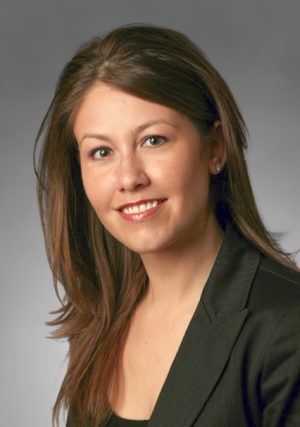
Melissa Laurenza
Usually lawyers can be confident that their communications with their clients and any work they do on their behalf will remain shielded from public consumption through the attorney-client and work-product privileges. We do not live in usual times.
When former Trump campaign adviser Paul Manafort was indicted on Monday, one of the documents unsealed was a decision by U.S. District Chief Judge Beryl Howell of the District of Columbia (the judge overseeing the grand jury empaneled by special counsel Robert Mueller) compelling one of his former lawyers to testify before the grand jury. Though that order redacted the name of the lawyer, the National Law Journal is reporting the attorney in question is Melissa Laurenza, partner at Akin Gump Strauss Hauer & Feld whose practice focuses on campaign law and lobbying registration.

First Draft To Final: How To Use AI To Accelerate Legal Drafting Workflows
Discover how LexisNexis Protégé™ transforms legal drafting into a strategic collaboration between lawyers and AI—enhancing quality, speed, and defensibility.
Judge Howell found a “crime fraud” exception to the attorney-client and work-product privileges, writing:
When a person uses the attorney-client relationship to further a criminal scheme, the law is well established that a claim of attorney-client or work-product privilege must yield to the grand jury’s investigatory needs.
Laurenza initially refused to testify, due to her ethical obligations to keep silent about communications with her client. However, in the decision Howell notes Laurenza’s lawyer says she will comply with the subpoena as long as that’s “within the bounds of her ethical obligations to her former clients.”
Mueller’s team sought testimony from Laurenza to determine if the information submitted by Manafort and his business associate Rick Gates to the Department of Justice under the Foreign Agents Registration Act was intentionally misleading. As such, Laurenza’s testimony before the grand jury was limited:

Pursuing The Pro Bono Story: A Conversation With Alicia Aiken
This Pro Bono Week, get inspired to give back with PLI’s Pursuing Justice: The Pro Bono Files, a one-of-a-kind podcast hosted by Alicia Aiken.
Mueller’s prosecutors, according to Howell’s ruling, would ask “narrow questions to confirm the source of the facts she submitted to the government, including whether her clients gave her the information represented in the letter as coming from them and/or reviewed a draft of the letter for accuracy.” According to the ruling, Mueller’s team stressed that it was not seeking “witness interview notes or to probe which witnesses she believed” but rather “just seeking to confirm that the source of the factual representations is what it purports to be: the clients’ recollections.”
Manafort and Gates have pleaded not guilty to the 12 counts against them which include: conspiracy against the United States, conspiracy to launder money, unregistered agent of a foreign principal, false and misleading FARA statements, false statements, and seven counts of failure to file reports of foreign bank and financial accounts.
 Kathryn Rubino is an editor at Above the Law. AtL tipsters are the best, so please connect with her. Feel free to email her with any tips, questions, or comments and follow her on Twitter (@Kathryn1).
Kathryn Rubino is an editor at Above the Law. AtL tipsters are the best, so please connect with her. Feel free to email her with any tips, questions, or comments and follow her on Twitter (@Kathryn1).